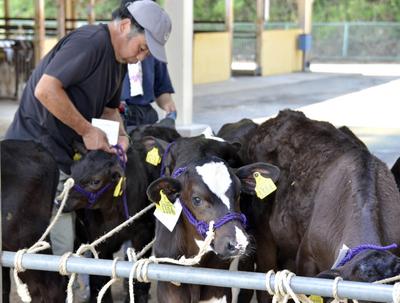In mid-April, the Japan Business Federation (Nippon Keidanren) released its ‘Proposals for Japan’s Trade Strategy’. The comprehensive document called for Japan to ‘pursue a proactive and strategic trade policy’, including a proactive approach to concluding the WTO Doha Round this year and promoting ‘the conclusion of EPAs with the United States, China, and the EU … through the frameworks of the TPP, ASEAN+6, and Japan-EU EIA’.
The document links these trade policy proposals directly to the situation in post-disaster Japan, asserting that for companies involved in rebuilding the national economy and industrial infrastructure it is important to ‘seek sources for growth overseas from their bases in Japan and to develop global business operations’. For these reasons ‘the WTO and TPP remain important policy issues’. At Keidanren’s recent summer forum in Tokyo, many business leaders expressed concern about the lack of progress in negotiations towards Japan joining the TPP.
Japanese business representatives argue that the earlier Japan joins then the more influence it will have over setting TPP rules. This is particularly important regarding concerns about the US trying to shape the TPP trade rules in its own interests.
In early May the National Central Union of Agricultural Cooperatives (JA-Zenchu), the agricultural sector’s peak lobby group, counterpunched with its own set of proposals for the rehabilitation of agriculture based on the lessons learnt from the earthquake. It requested the government examine and implement agricultural policy measures focussed on revival.
The Kan administration was scheduled to decide whether to participate in the TPP negotiations in parallel with an Agricultural Reform Basic Policy in June, and formulate an action plan by October. But, because of the earthquake, the government’s discussions about agricultural reform halted and the decision on whether to participate in the TPP has been postponed. Its May ‘Policy Promotion Guidelines — Towards Japan’s Regeneration’ said only that the timing of a decision would be considered in a comprehensive manner, but it remains unclear when the decision will be made.
In June, the political arm of the agricultural cooperatives, Zenkoku Noseiren, called for an immediate halt to TPP discussions, reasoning that ‘because the damaged areas are regions where agriculture, forestry and fishing are the main industries … consideration of participating in TPP negotiations will become a burden on this revival’. Zenkoku Noseiren also shot down one of the Kan administration’s principal arguments in favour of agricultural trade liberalisation — that it would facilitate Japanese agricultural exports — highlighting that, because of Fukushima, a number of countries have banned food imports from Japan due to nuclear contamination risk.
In early July, the Ministry of Economy, Trade and Industry (METI) released a White Paper on International Economy and Trade. It echoed the arguments advanced in the Keidanren proposals, asserting that FTAs with other countries were important for Japan’s economic recovery. As an illustration, it noted that ‘if various costs are reduced by free trade agreements … it would give a boost to [companies’] production activities’. But on the TPP issue the White Paper was surprisingly tentative, saying only that it ‘might be desirable’ for Japan to join. Here, METI’s vague wording may reflect a decline in political influence following Fukushima, and an unwillingness to broach the sensitive issue of joining the TPP when farmers in north-eastern Japan are still recovering.
So where to from here? The short answer is ‘nowhere’. Despite METI and Keidanren drawing the obvious link between boosting Japan’s trade prospects and economic revival, Kan has no political capital to expend on the TPP issue. At present, trade policymaking is a holding operation, as is the administration itself. This is despite recent approaches to the Mercosur agreement and comments in April about Japan conducting a joint study with China and South Korea on a trilateral FTA.
The political uncertainties facing the Kan government make dealing with the TPP issue impossible. As the PM himself has been such a key driving force behind the government’s proactive trade policy, its fate is tied up with his, which looks bleak. Kan’s government is set to end in August. The trade policy of the next administration is an unknown quantity. If it were led by current MAFF minister Kano Michihiko, who is shaping up as the candidate of the Ozawa group, then any further agricultural trade liberalisation could be ruled out.
Japan needs strong political leadership to create the domestic conditions for joining the TPP. This, in turn, needs to be buttressed by institutional reforms that prevent the pro-liberalisation METI and the pro-protection Ministry of Agriculture, Forestry and Fisheries cancelling each other out. If trade policy reform could be dealt with by a policy command centre such as the National Strategy Office, then progress might be made. As argued elsewhere, trade liberalisation would also be assisted by having a separate government body with the power to negotiate trade agreements and to override the line ministries, as in South Korea.
Aurelia George Mulgan is Professor of Politics at the University of New South Wales, Australian Defence Force Academy, Canberra.


Introduces most of the main players protecting Japan from hasty decisions by feeding it radioactive food.
Wish TPP wasn’t involved in this issue as the protectionist political groups rallying to block it are interfering with gov’t responsiveness on Fukushima public policy. Especially the need to coordinate consumer protection policies in the market and trade policies.